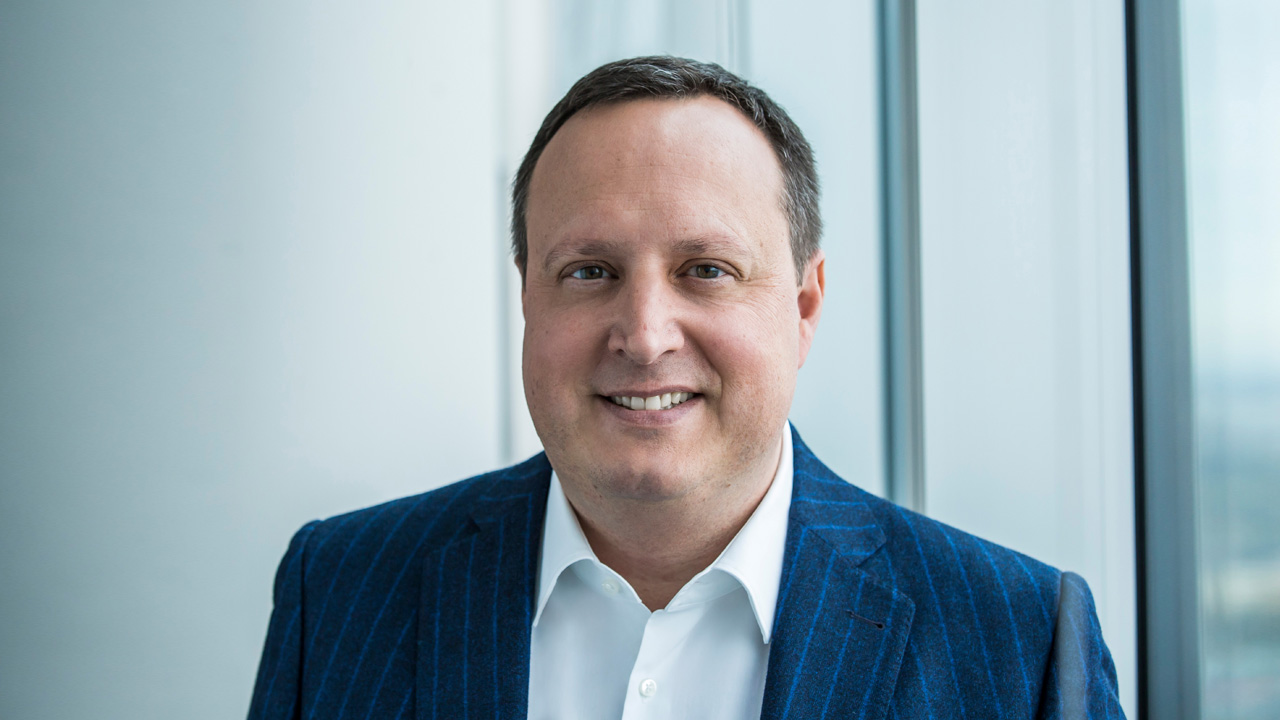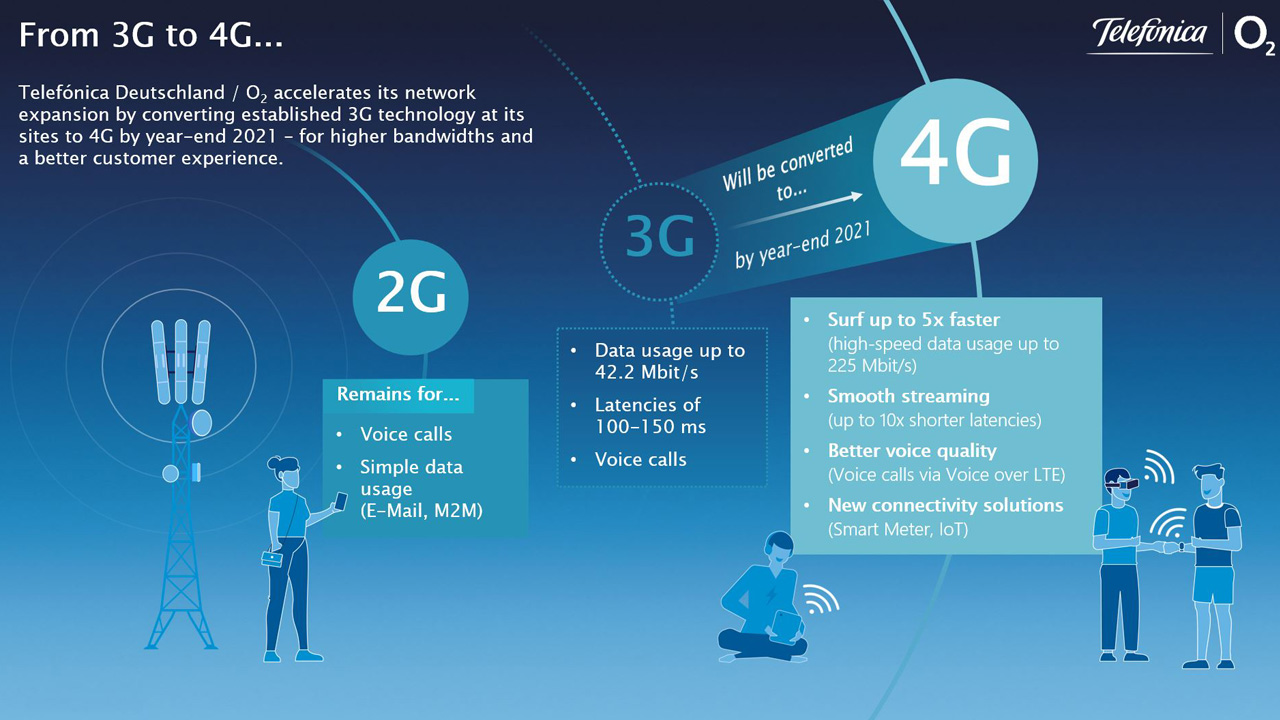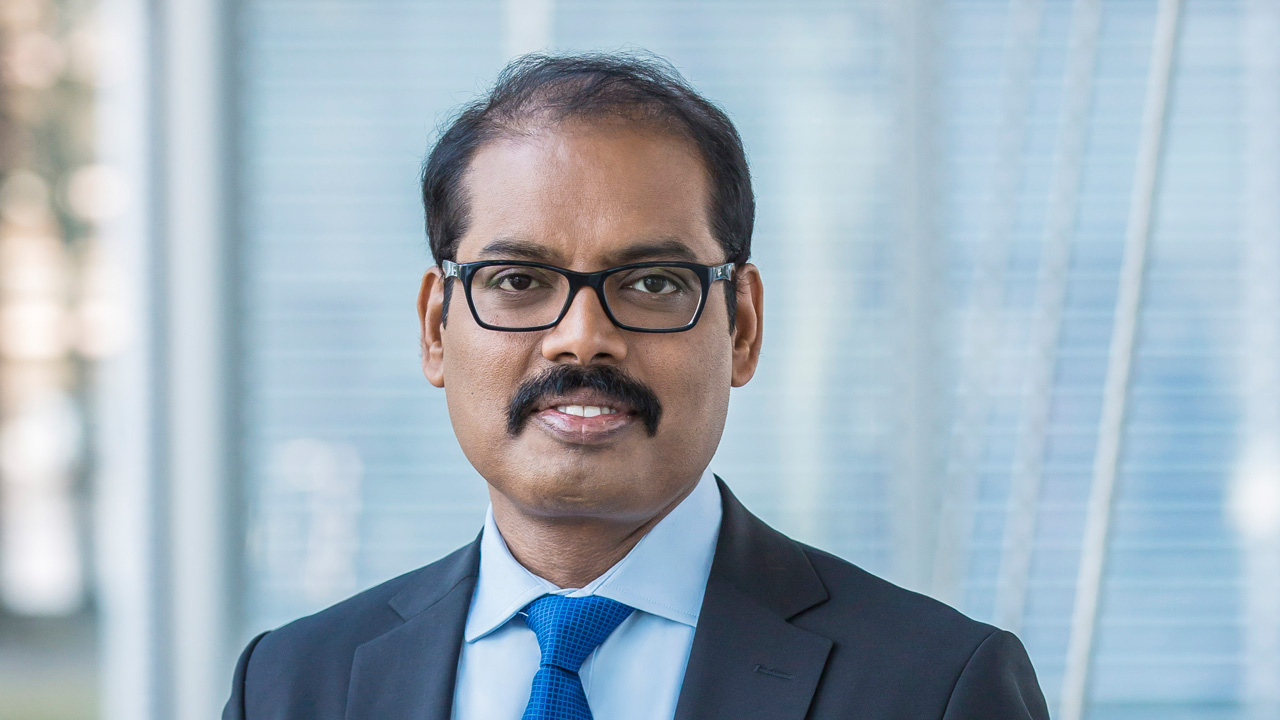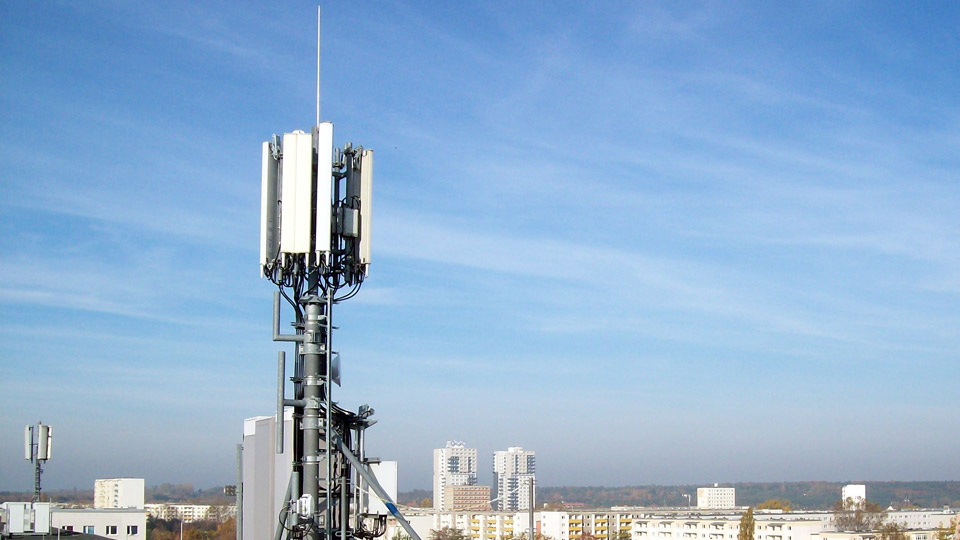18.11.2020
3G becomes 4G by the end of 2021:Telefónica Deutschland / O2 accelerates network expansion at 18,000 sites

Markus Haas
Telefónica Deutschland / O2 is once again accelerating its network expansion: By the end of 2021, the network operator will convert the existing 3G technology of its O2 network to more powerful 4G technology - one year ahead of schedule. Customers of all brands of Telefónica Deutschland / O2 will benefit from a better network experience in their daily data usage. O2 customers will be able to surf the web significantly faster via the 4G network than on the former 3G basis and the voice quality will improve noticeably. With this decision it is also clear: By the end of 2021 3G will be a thing of the past in Germany. Mobile phone customers in this country will in future only use the significantly faster 4G and 5G standards for mobile applications such as social media or music and video streaming.
"3G was important for the breakthrough of mobile data communication in Germany. But after 20 years, the days of this technology are numbered. Our O2 network of the future relies on the significantly more powerful 4G and 5G standards to ensure that our around 44 million customers benefit from a modern high-speed network. We are thus giving digitalization in Germany a further acceleration," says Markus Haas, CEO of Telefónica Deutschland / O2. "We are also taking an important step towards climate neutrality, as our network will consume significantly less electricity per byte in future.”
Network of the future saves up to 90 percent energy

Telefónica Deutschland / O2 will be able to accelerate its 4G and 5G network rollout even faster in the future by using the additional frequency spectrum at 2,100 MHz that has been used for 3G so far. For this reason, the company is bringing forward by one year the 3G switch-off originally planned for 2022.
The network quality is already improving in the short term: The O2 network engineers are already converting the first sites with 3G technology completely to 4G by the end of 2020, while 3G and 4G can continue to be used in parallel at the other sites for the time being. The majority of the conversions at the currently around 18,000 sites with 3G technology will then take place in the second half of 2021. The mobile phone sites will generally be converted to the faster 4G mobile phone standard within the shortest possible time and with as little interruption as possible.
The measure also has an impact on climate efficiency: By converting 3G technology to 4G or 5G, Telefónica Deutschland / O2 will in future reduce power consumption by up to 90 percent per transported byte. The company has been drawing its electricity entirely from renewable energies since 2016. By 2025 at the latest, the company wants to become climate-neutral.
Faster O2 network for mobile customers

Mallik Rao
"With 4G and 5G, we get more bandwidth out of the same frequency spectrum and thus a significantly better customer experience," says Mallik Rao, Chief Technology & Information Officer at Telefónica Deutschland / O2. "Our O2 customers will be able to surf our network much faster in the future. Other advantages are shorter reaction times for data usage and a generally more powerful O2 network.”
4G has long been the backbone of digital connectivity and the daily customer experience is unimaginable without it. Whereas in 2016, around 60 percent of data in the O2 network was still flowing over the older 3G network, today over 90 percent of all data is already running over 4G. In the future, usage will be split between the 4G and 5G network.
The advantages for O2 customers are obvious: they surf the Internet at up to 225 Mbit/s at 4G locations instead of 42.2 Mbit/s over 3G - and thus up to five times faster – provided they are using an appropriate tariff. In addition, 4G delivers up to ten times shorter response times (latencies) compared to 3G. Numerous customers of other own and partner brands will also benefit from the more modern 4G technology and higher capacities at even more locations in the future.
In addition, the voices can be heard much more clearly when calling over the 4G network - thanks to the Voice over LTE (VoLTE) technology, which has been available to most of Telefónica Deutschland / O2's own and partner brands since March 2018.
The relevance of UMTS is also steadily declining in the business customer segment. Modern IoT solutions are more and more frequently handled over 4G - and in future 5G. In addition, simple M2M connections via the 2G network will remain.
Customers automatically benefit from 4G

O2 customers and customers of many other own and partner brands have already had access to the 4G network for years, so they benefit directly from the 3G to 4G conversions. Of the company's 44 million customers, over 97 percent already use mobile data with a 4G-enabled device.
For all customers who do not use mobile data, nothing will change. They can still make phone calls or send short messages (SMS) as usual. For this purpose, the existing 2G network will be retained as a well-developed basic network.
Customers whose mobile data use is still limited to the 3G network will be proactively informed by Telefónica Deutschland / O2. O2 will offer its customers a free SIM card exchange as well as hardware options if required. There will be no changes to the terms of the contract or the personal telephone number.
O2 customers can already find attractive offers in the O2 stores and online. They can also purchase a new smartphone at attractive conditions via O2 My Handy and in combination with the O2 Free tariffs. 4G-capable end devices are often available for less than 100 euros even without a tariff. In addition, many other own and partner brands of the company also offer attractive hardware deals.